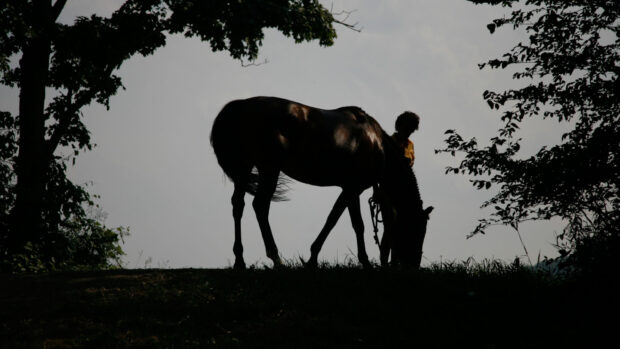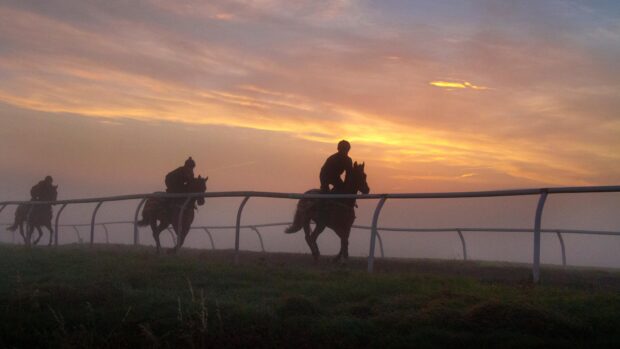Mares may show “better behaviour” towards humans and other horses when they are in season, new research has suggested.
A study published in Animals by researchers from the University of Life Sciences in Poland looked at the physiological and behavioural traits of mares at different times of their oestrus cycle. The aim was to assess changes in cardiac activity, rectal and skin temperatures, behaviours towards humans and horses, and locomotor activity while mares are in season, (oestrus), and when they are not (dioestrus).
The researchers examined 15 warmblood mares aged seven to 10 years old – each of whom had had a foal in the previous three years – on a number of occasions in the morning and evening during their cycle, over a five-week period. The length of the mares’ cycles had been determined during earlier breeding seasons, and signs of the mares’ being in season were identified during daily observations by the study’s lead author, a breeder.
A test of “stroke acceptance” was used to analyse the mares’ behaviour towards humans, during which a familiar human approached the horses and tried to stroke their shoulders and noses, moved away then repeated the exercise. The data was used to calculate a mean score, and it was found that the horses’ behaviour towards humans was more positive when the mares were in oestrus compared to when they were not. It was also reported to be more engaged in the mornings, compared to evenings.
“The test of stroke acceptance showed that mares accept being stroked more often in oestrus, particularly in the second part, than in dioestrus, and the scores for behaviour towards humans drop in the first days of dioestrus,” the researchers discussed.
“It is known that stroking relaxes and rewards an agitated horse or one tired after a stressful situation or physical effort.”
The researchers added that the changes in behaviour towards humans recorded when a mare is in oestrus could suggest that assurance can be provided by human contact during this time.
When analysing behaviour towards other horses, the mares were turned out together in two separate groups in a familiar paddock and their behaviours were recorded. “Calm approaching” and mutual grooming were among the positive behaviours observed. Negative behaviours included the horses’ having their ears back, chasing or threatening to bite and kick. The researchers found negative behaviours were less frequent when the mares were in season, compared to when they were not.
“The mares were accustomed to each other being turned out into paddocks or pasture in the constant social group with an established hierarchy, hence, negative behaviours towards conspecifics occurred rarely,” said the researchers.
“Interestingly, a lower number of negative behaviours in oestrus than dioestrus can also indicate a need for contact with conspecifics during oestrus associated with sexual behaviour.”
The researchers concluded that the study showed that although changes to variables such as heart rate, rectal and skin temperature indicated an elevated activity connected with the emotional excitability of healthy horses, the behaviour shown towards humans and other horses, were not characteristic of arousal but a relaxed state.
“The outcomes may contribute to the knowledge of, among others, mare owners and equine behaviourists who evaluate the oestrus solely by a mare’s sexual behaviours without taking into account other rhythmically changing variables,” they said.
You might also be interested in:

Equine kissing spines gene discovery may help save horses from avoidable back pain

One in four horses’ bits don’t fit, research finds

Subscribe to Horse & Hound magazine today – and enjoy unlimited website access all year round
Horse & Hound magazine, out every Thursday, is packed with all the latest news and reports, as well as interviews, specials, nostalgia, vet and training advice. Find how you can enjoy the magazine delivered to your door every week, plus options to upgrade your subscription to access our online service that brings you breaking news and reports as well as other benefits.




